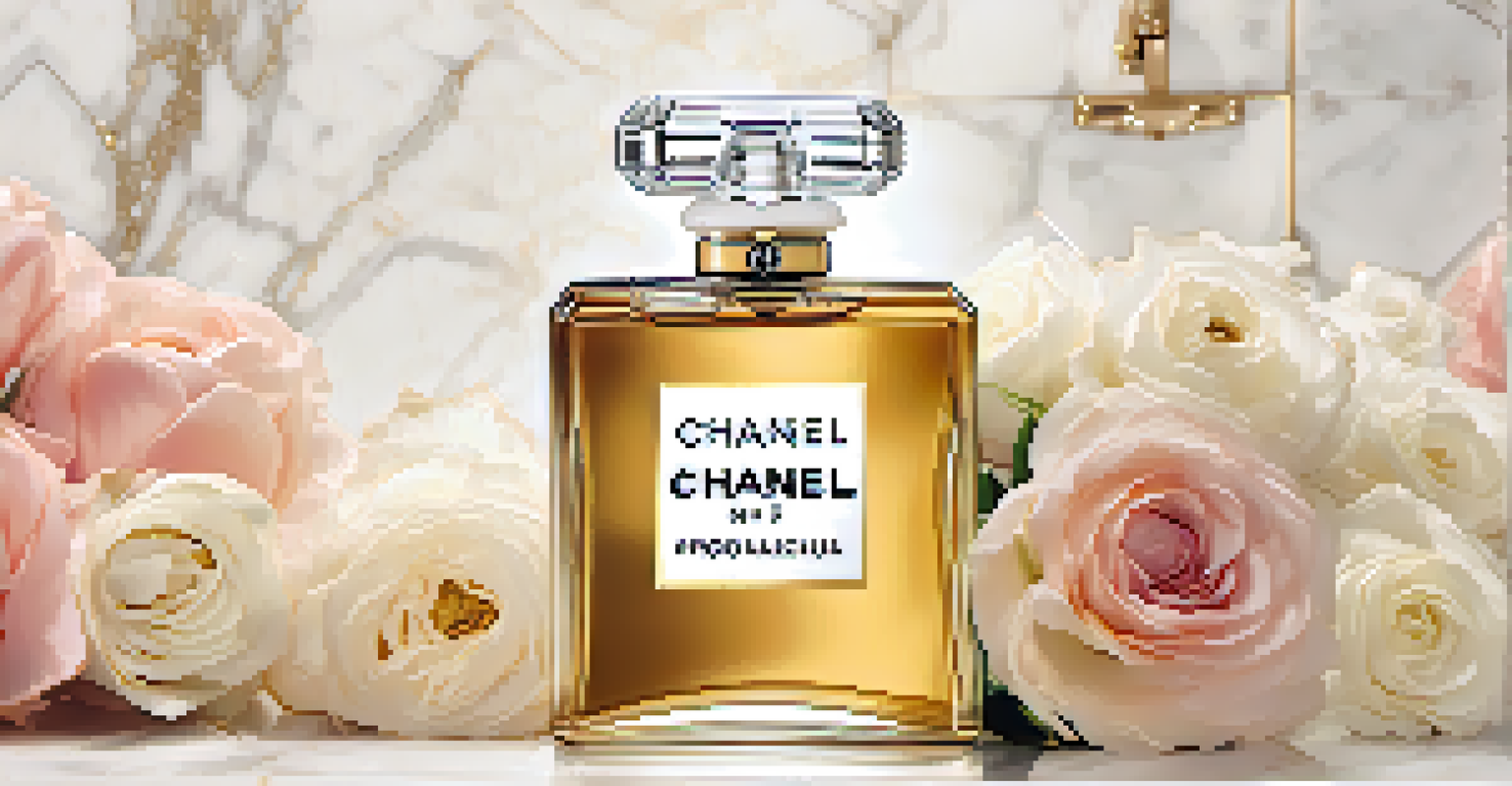Coco Chanel: The Timeless Influence on Luxury Fashion

Coco Chanel: A Pioneering Force in Fashion History
Coco Chanel, born in 1883, revolutionized women's fashion by introducing a style that combined elegance with comfort. She broke away from the restrictive garments of the 19th century, making way for more practical yet chic designs. Her vision was not just about clothing; it was about liberating women from the constraints of fashion norms.
Fashion is not something that exists in dresses only. Fashion is in the sky, in the street, fashion has to do with ideas, the way we live, what is happening.
Chanel's most iconic creation, the little black dress, epitomizes her forward-thinking approach. This simple yet sophisticated design remains a staple in modern wardrobes, showcasing her ability to blend simplicity with class. By making black a fashionable color for women, she transformed how society viewed both color and femininity.
Beyond clothing, Chanel's influence extended to fragrance with the launch of Chanel No. 5 in 1921. This perfume became a symbol of luxury and sophistication, reflecting her belief that scent could embody a woman's personality. Today, Chanel No. 5 remains one of the best-selling fragrances worldwide, a testament to her enduring legacy.
Chanel's Bold Approach to Fashion and Branding
One of Chanel's most significant contributions to fashion was her innovative approach to branding. She understood the importance of a strong personal brand, and she became a living embodiment of her fashion line. By associating her name with quality and elegance, she laid the groundwork for future fashion designers to build their brands on a personal identity.

Chanel's use of signature elements, such as the interlocking 'CC' logo and the quilted handbag, established an instant recognition factor. These designs were not merely aesthetic; they were carefully crafted to convey exclusivity and luxury. This strategic branding has influenced countless luxury brands that followed, emphasizing the importance of a cohesive brand identity.
Chanel Redefined Women's Fashion
Coco Chanel transformed women's fashion by prioritizing comfort and practicality, paving the way for modern styles.
Moreover, her daring spirit and the boldness of her designs encouraged women to express themselves more freely. Chanel embraced the idea that fashion should reflect one's personality rather than merely follow trends. This philosophy paved the way for the modern luxury fashion industry, where self-expression is celebrated.
The Chanel Suit: A Symbol of Empowerment
The Chanel suit, introduced in the 1920s, redefined women's workwear and became a symbol of empowerment. It combined tailored elegance with feminine grace, allowing women to feel confident in professional settings. This was particularly revolutionary at a time when women were just beginning to enter the workforce in larger numbers.
A girl should be two things: who and what she wants.
Chanel's design featured a boxy silhouette and a comfortable fit, which contrasted sharply with the more restrictive styles of the past. The suit's practicality made it a favorite among women who sought both style and functionality. It represented a shift in societal norms, highlighting the importance of women's independence.
Even today, the Chanel suit remains a timeless piece, often seen on influential figures in various industries. Its legacy continues to inspire modern designers who prioritize comfort and empowerment in their collections. The Chanel suit is not just clothing; it's a statement of women's strength and capability.
Chanel's Legacy: Influence on Modern Designers
Coco Chanel's influence can be seen in the work of many contemporary fashion designers who draw inspiration from her timeless styles. Her focus on comfort and elegance is echoed in the collections of designers like Ralph Lauren and Stella McCartney. They incorporate similar philosophies, prioritizing practicality without sacrificing aesthetic appeal.
Additionally, many luxury brands today continue to uphold the principles that Chanel championed. From minimalist designs to the celebration of femininity, her impact is palpable across the fashion landscape. This underscores how her vision transcended her era and remains relevant in today's fast-paced fashion world.
Empowerment Through the Chanel Suit
The Chanel suit emerged as a symbol of empowerment, allowing women to feel confident and stylish in professional settings.
Chanel's legacy also inspires new generations of designers, encouraging them to think outside the box and challenge traditional norms. By embodying the spirit of innovation and independence, designers today can channel Chanel's ethos into their work, ensuring her influence endures for years to come.
Chanel and the Evolution of Feminine Fashion
Chanel played a crucial role in shifting perceptions of feminine fashion, moving it away from elaborate, restrictive designs to more versatile and practical options. Her creations emphasized a woman's natural beauty, allowing for a more relaxed and authentic expression of femininity. This paradigm shift opened doors for future designers to explore new styles that celebrate women's individuality.
By introducing menswear-inspired pieces, such as trousers and blazers, Chanel challenged gender norms and redefined what it meant to be fashionable. Her designs encouraged women to embrace their strength while still expressing their femininity. This blending of traditionally masculine and feminine elements remains a hallmark of modern fashion.
As a result, Chanel's influence extends beyond clothing; it has shaped the very concept of femininity in fashion. Today, women are empowered to dress in ways that reflect their personalities, rather than conforming to societal expectations. This legacy of empowerment continues to inspire and resonate within the fashion industry.
Coco Chanel's Impact on Luxury Marketing
Coco Chanel was not just a designer; she was a master marketer. She understood the importance of storytelling in luxury fashion, using her own life experiences to connect with her audience. By crafting a narrative around her brand, she created a sense of aspiration that attracted consumers to her creations.
Her strategic use of high-profile endorsements also set a precedent for modern marketing tactics. By dressing famous actresses and socialites, she elevated her brand's visibility and desirability. This approach demonstrated the power of celebrity influence in luxury fashion, a strategy that continues to be effective today.
Legacy of Innovation and Branding
Chanel's approach to branding and marketing set a precedent for luxury fashion, influencing countless designers and brands today.
Moreover, Chanel's emphasis on exclusivity and luxury has shaped the marketing landscape in fashion. Brands now curate their image to evoke a sense of rarity and prestige, drawing from Chanel's pioneering methods. Her legacy in luxury marketing is evident in how brands present themselves as aspirational while maintaining an air of accessibility.
The Enduring Allure of Coco Chanel
Coco Chanel's legacy is far from fleeting; it is a testament to the lasting allure of her vision. The principles she established in fashion continue to resonate with both designers and consumers alike. Today's luxury fashion landscape owes much to her innovative spirit and commitment to redefining women's style.
Chanel's ability to blend elegance with practicality has made her designs timeless, appealing to generations of women seeking sophistication without sacrificing comfort. As trends come and go, the essence of Chanel remains a constant, serving as a reminder of the power of authentic style.

Ultimately, Coco Chanel's influence transcends mere fashion; it represents a cultural shift towards empowerment and self-expression. Her legacy encourages us to embrace our individuality, reminding us that true style is not just about what we wear, but how we wear it.